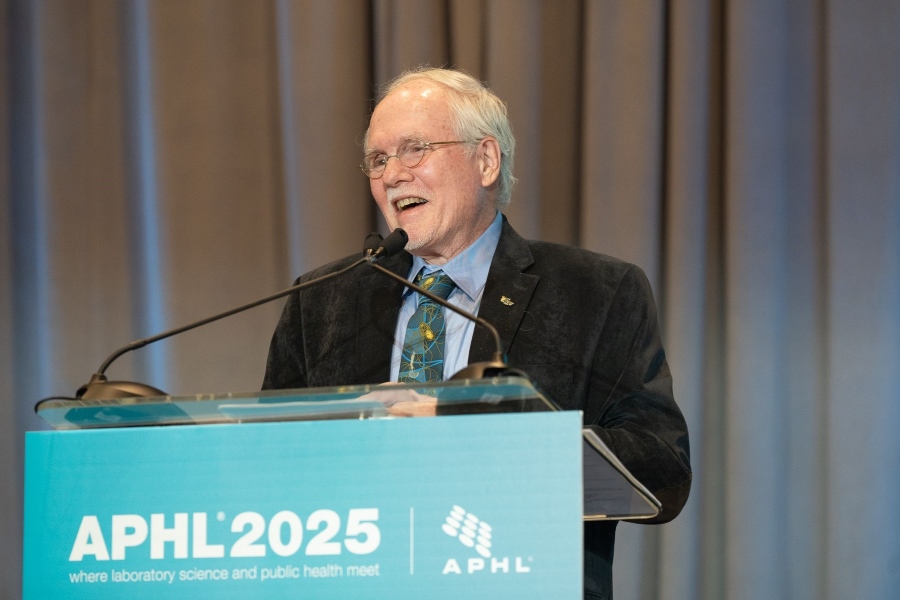Peter Iwen, PhD, a professor in the UNMC Department of Pathology, Microbiology and Immunology, has received the Leadership in Biosafety and Biosecurity Award from the Association of Public Health Laboratories (APHL).
In presenting the award, the APHL noted Dr. Iwen’s work with the Administration for Strategic Preparedness and Response and the CDC to better define testing capabilities for the detection of high-consequence pathogens. Dr. Iwen is director of the Nebraska Public Health Laboratory (NPHL) and also serves as senior biosafety officer for UNMC and the University of Nebraska at Omaha.
He received the award at APHL’s annual conference, which was held May 7 in Portland, Oregon.
“It is humbling to receive this honor on behalf of the staff at the Nebraska Public Health Laboratory,” Dr. Iwen said. “Although we represent a smaller laboratory operation, the staff members are well recognized nationally for their service to the public health laboratory profession. I therefore share this aware with them.”
Dr. Iwen, who began at UNMC in 1978, has consistently been at the forefront of biosafety and biopreparedness efforts. In 1997, when the laboratory was transferred to the UNMC campus, he played a pivotal role in the establishment of a biopreparedness section within the lab.
His vision and leadership were critical in developing a framework to prepare the lab for high-consequence pathogens and public health emergencies. This foundational work set the stage for NPHL’s leading role in testing for emerging infectious diseases and select agents.
Dr. Iwen was especially instrumental during the 2014 Ebola outbreak, when he led critical biosafety efforts for the safe handling and testing of the virus. His role in ensuring the safety of laboratory and clinical staff during that time demonstrated his expertise in managing high-risk pathogens under intense pressure. His experiences during that time also made him a leader in shipment of confirmed select agents.
Most recently, he led the testing response for Lassa fever. His expertise in managing biosafety protocols, alongside his long-standing experience with similar pathogens, has been crucial in the safe handling, testing and shipping of potentially dangerous samples. Dr. Iwen’s response during these global health crises has exemplified his capacity to adapt rapidly to new threats while ensuring that safety remains the top priority.
“Dr. Iwen’s career reflects a deep commitment to advancing the science of biosafety and biosecurity through collaborative efforts, consistent innovation, and an unwavering dedication to public health,” said Emily McCutchen, NPHL manager.
“His tireless work in biosafety has not only helped safeguard those working with dangerous pathogens but has also contributed significantly to enhancing the public’s confidence in the safety of biomedical research. He exemplifies the qualities of leadership, responsibility, and expertise that are crucial to advancing the science of biosafety in the face of ever-evolving global health threats.”
